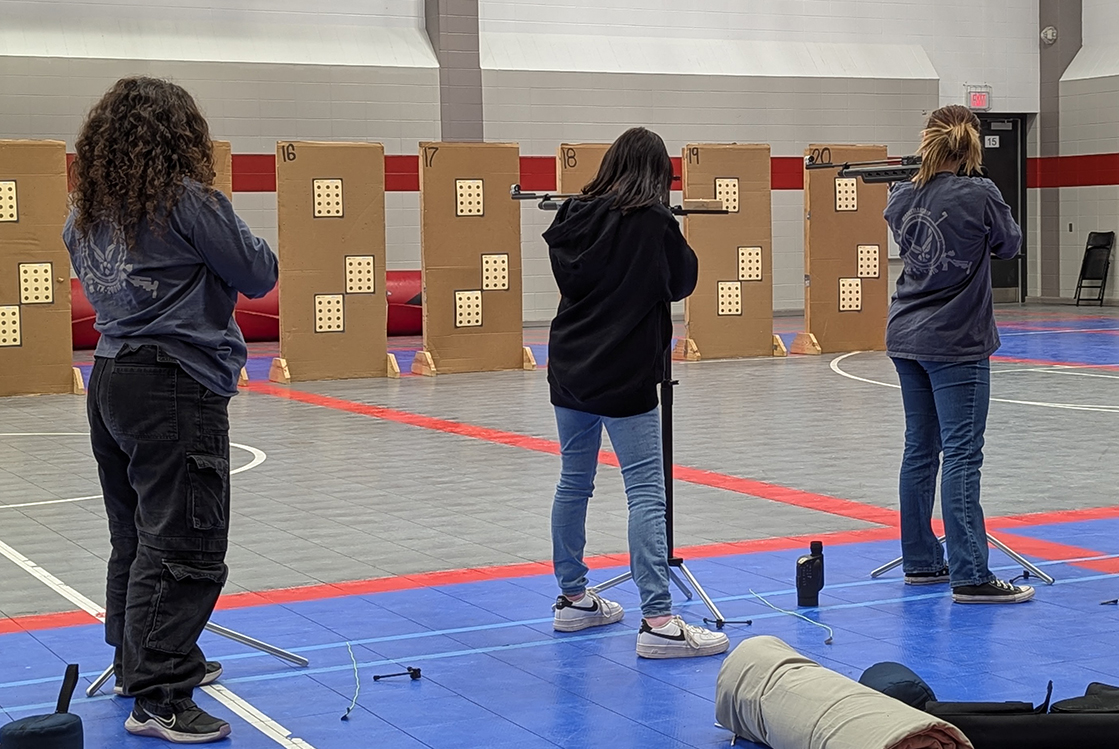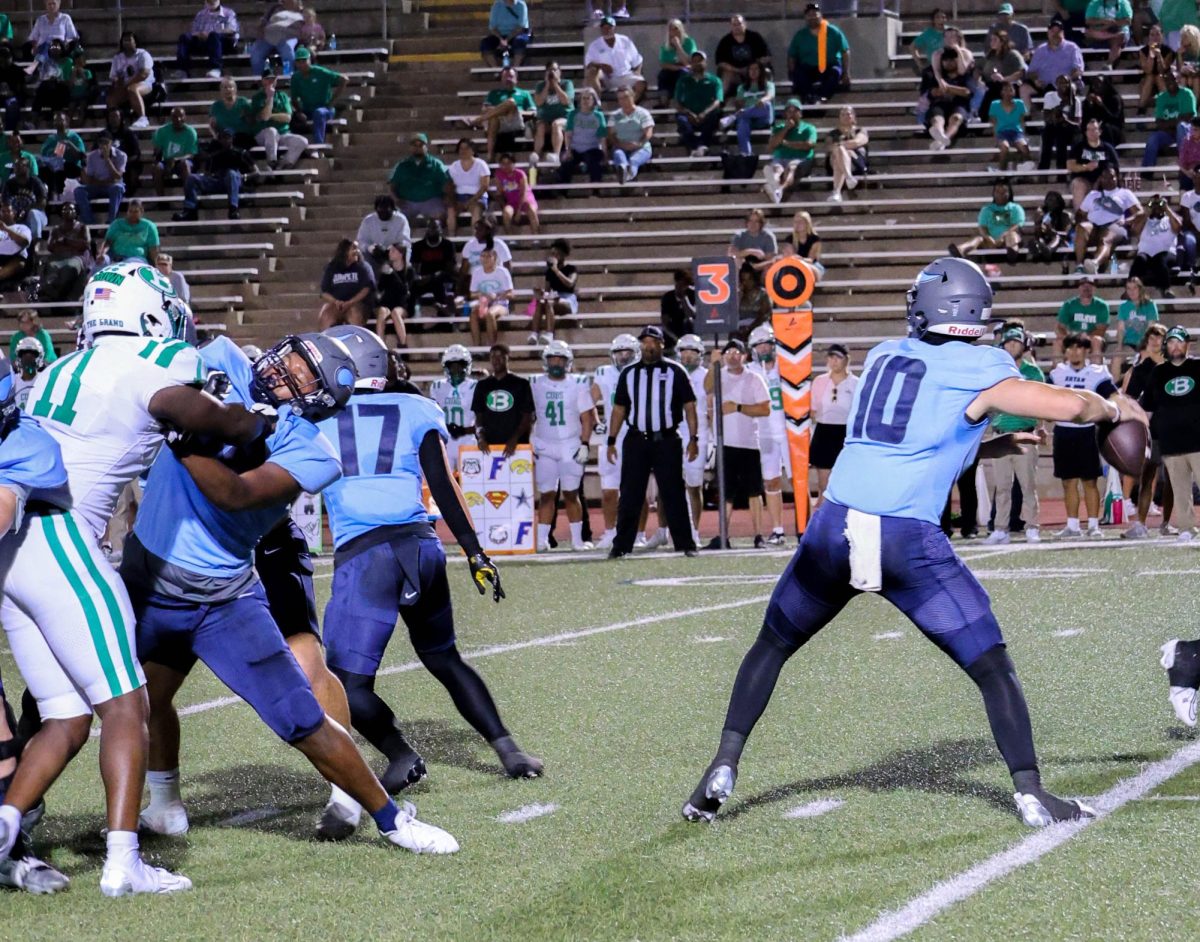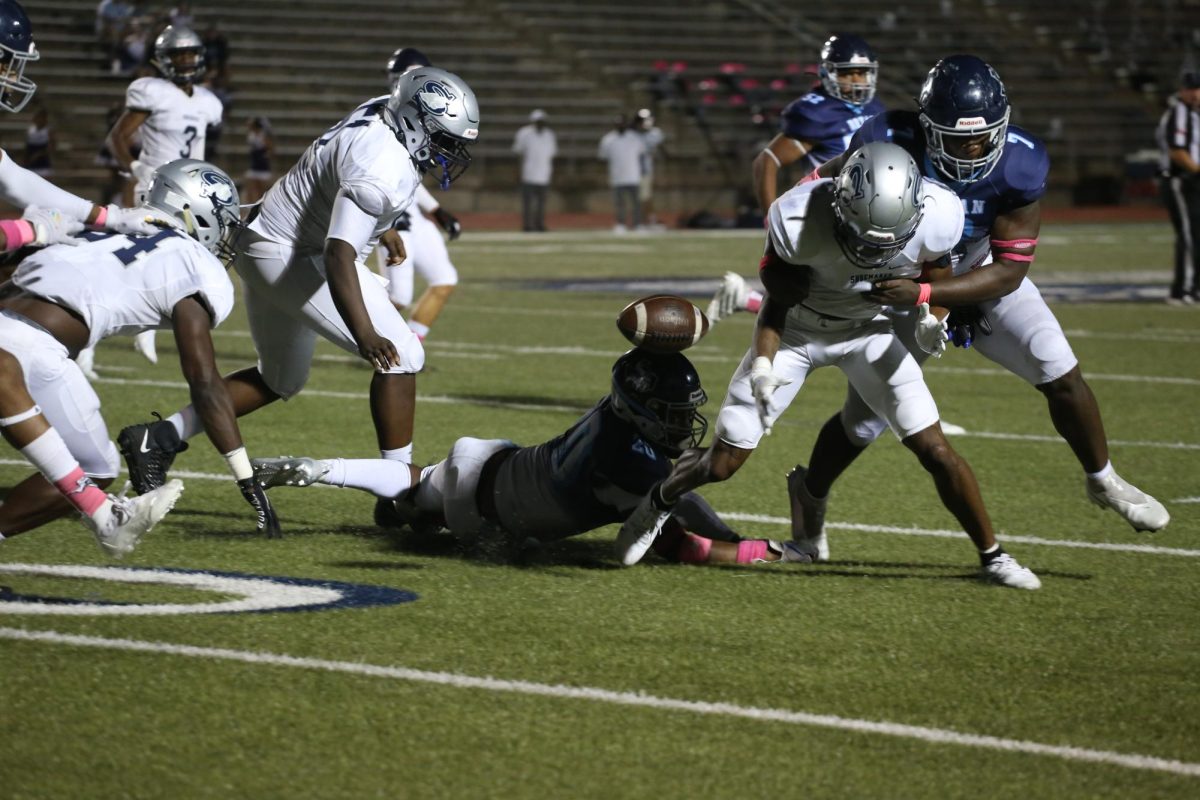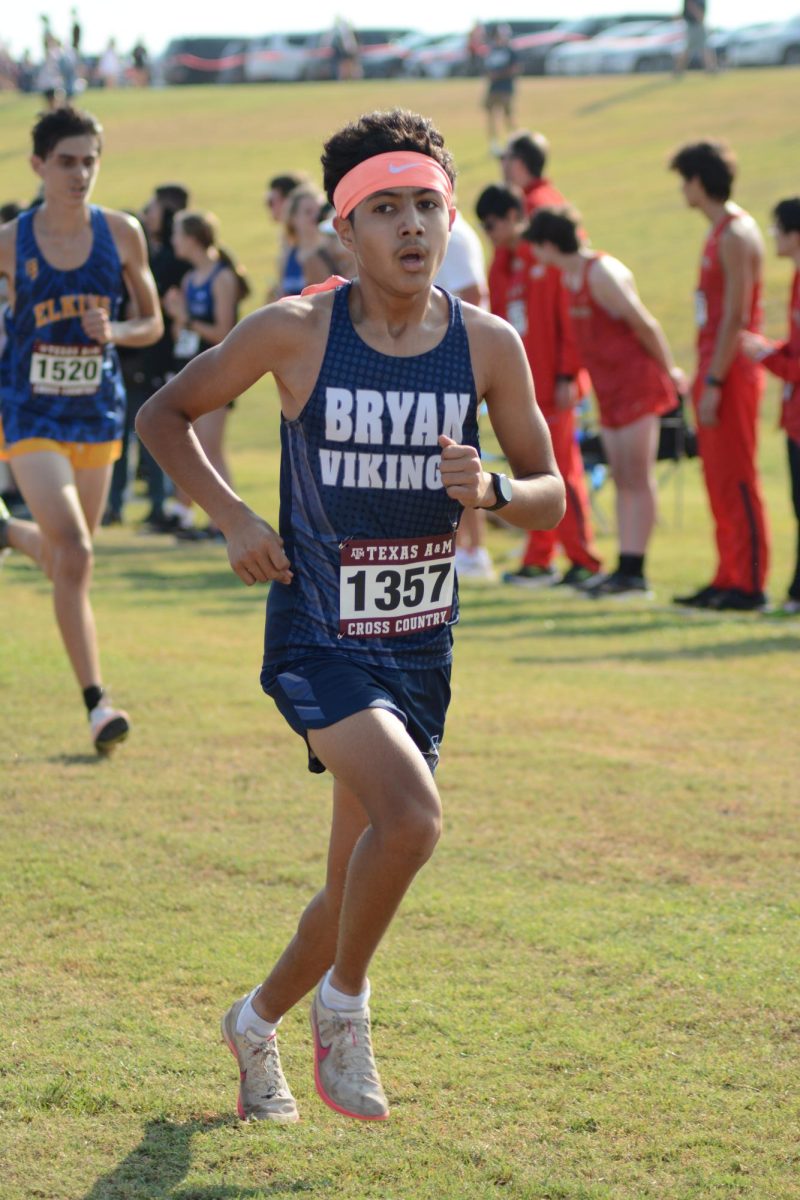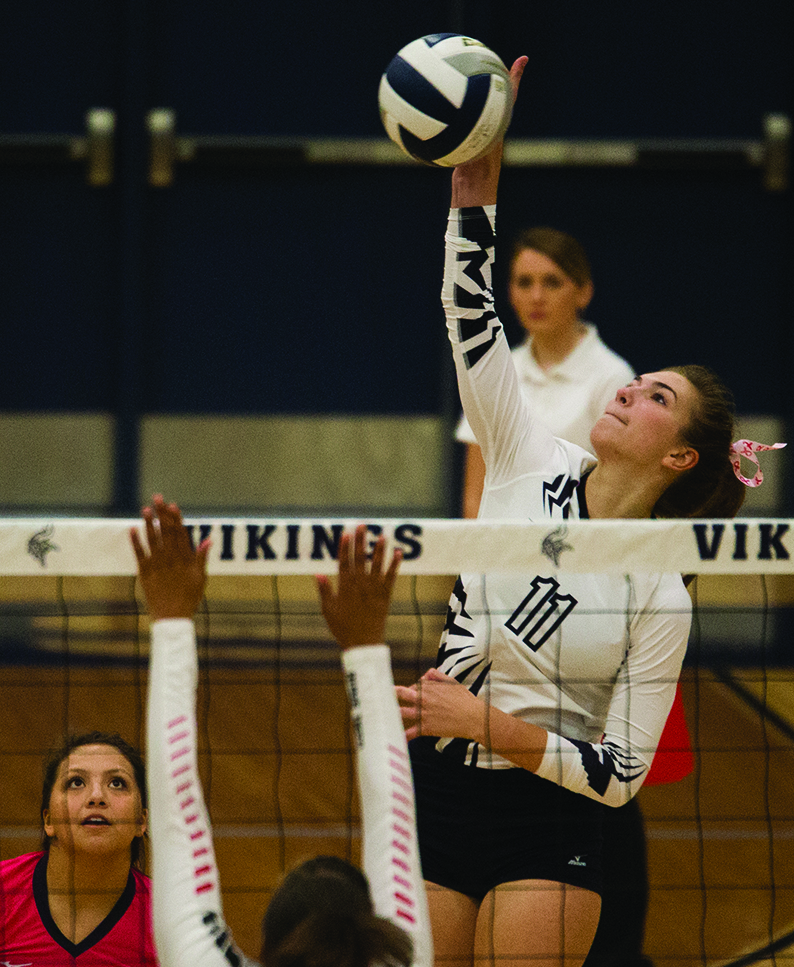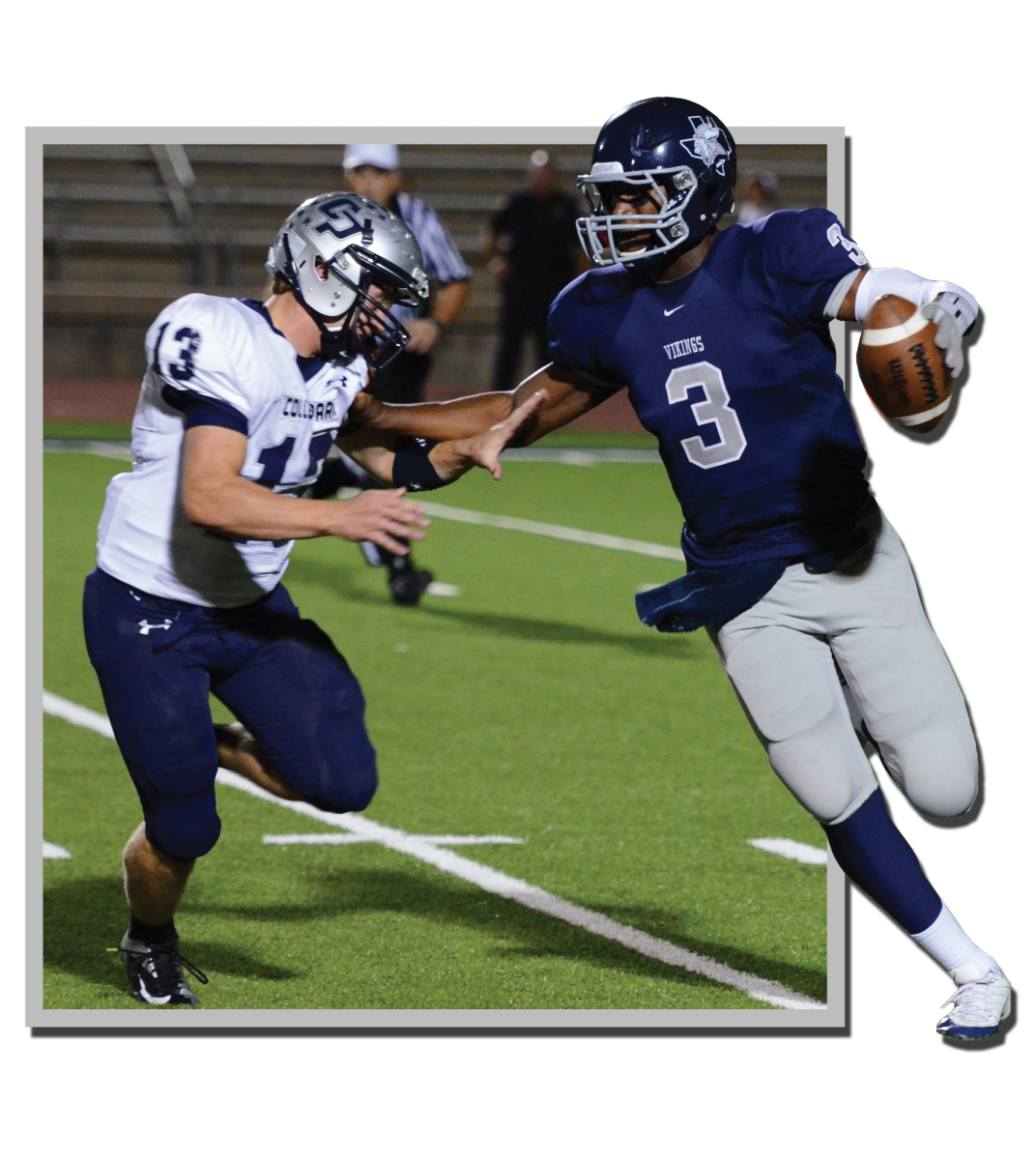Distances. Angles. Topography. Subconscious math calculations stream through the mind as a golf club is selected, a swing is performed, and the lay of the ground directs the roll of the ball. Golf coach Matt Hamilton has been coaching the golf team for the past three years and, while he enjoys all aspects of the sport, he has a particular connection to it through math as a geometry teacher.
“I love to teach others,” Hamilton said, “Teaching others about a sport that is so challenging and is a lot of fun. It is like a fun puzzle to figure out how to teach each person to swing in their unique way of learning.”
Many golfers also notice how math plays a role by giving the subject real-world context that students usually struggle to see the application for.
“Golf is very similar to math,” Senior Luke Robertson said. “Calculating distances, how hard to hit the ball, and which club to use all involves math, even if the golfer doesn’t realize they are using it.”
Senior golfer Ty Greenlee has developed an appreciation for the way the sport does not focus on strength or speed as the primary factor in success.
“Golf is very analytical and players have to plan out their game,” Ty said. “It requires a lot of finesse.”
Hamilton started playing golf with his dad and brother in their backyard when he was 7-years-old and his appreciation for the sport only grew over the years.
“I love being outside and in nature, so golf suits me,” Hamilton said. “Golf is hard, and I personally believe that it is the hardest sport mentally that exists because it is all on you. The ball is sitting still, there is no defender guarding you, it is on you if something goes wrong, not a teammate.”
Many golfers struggle with the physical and mental aspects of golf, but like with many things, practice increases their capabilities.
“Compared to any other sport, I think golf is the best at improving mentality,” Luke Robertson said. “If a player is walking through a golf course and it gets tough because they haven’t played in a while, it forces them to get mentally stronger to improve their game.”
As an individual sport, golf teaches players to depend on and trust themselves by creating mental strength.
“Golf is a mental game since it makes golfers solely responsible for their own score,” Hamilton said. “Golf teaches players perseverance and hard work on an individual level. In a team sport, if a player is having an off day, a teammate can lift them up to help, but in golf they are on their own once the tournament starts and they have to have the mental fortitude to keep going.”
Golf itself is difficult, a player needs more than just their mentality. Players need someone who can make the learning process easier.
“Mr. Hamilton definitely tries to make golf as fun as possible,” Luke said. “He’s only been coaching for three years, and in that time he’s done a lot to change the golf program and make it as good as it can be.”
Like most coaches, Hamilton wants his athletes to be successful on the course, but he also wants to prepare them for the future and the obstacles they will face as adults.
“I want my players to learn determination and gain the fortitude to not give up,” Hamilton said. “Someone could be a good golfer, they know that they’re good, but then they hit a shot and they have to keep going and not give up. That’s what I want for my players.”

